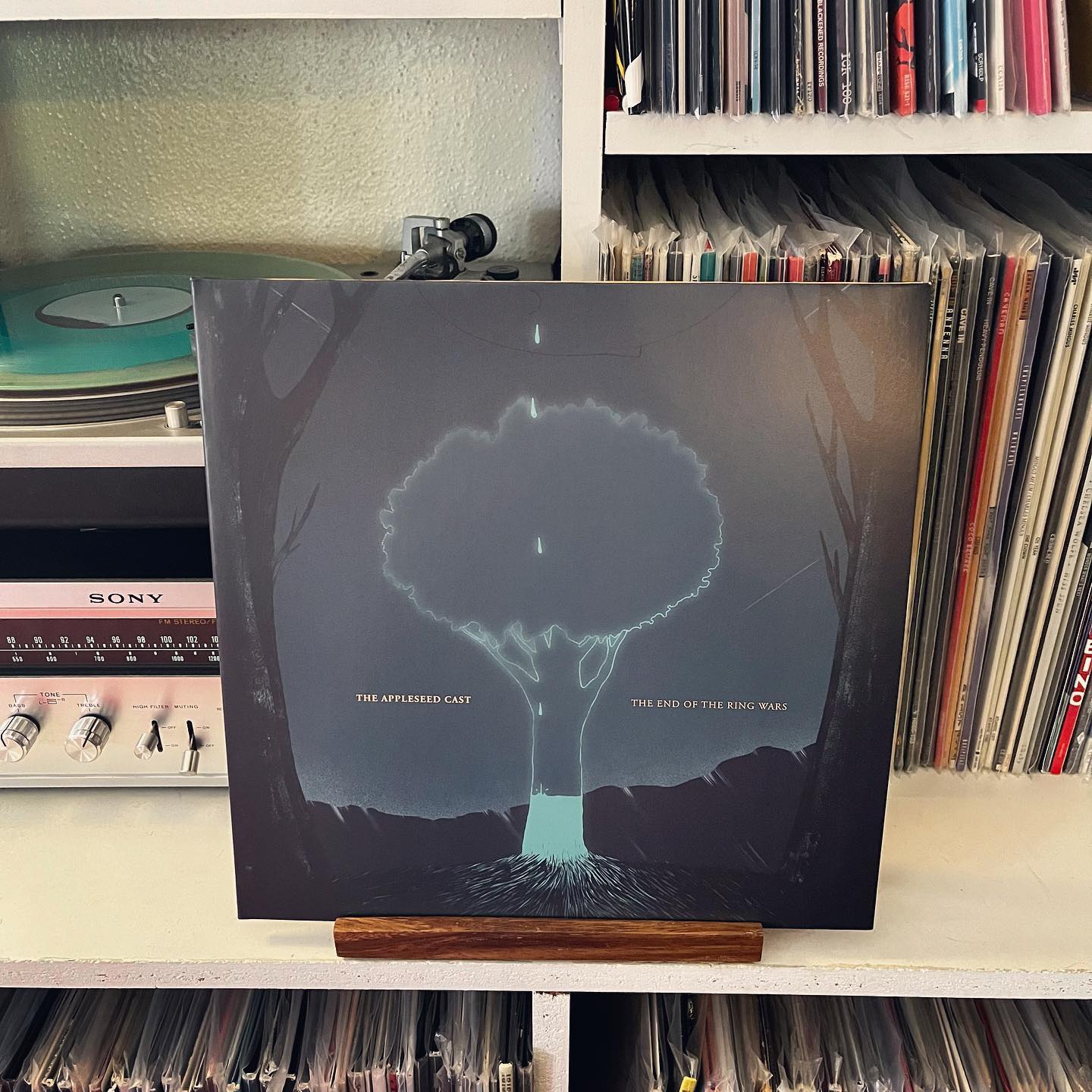
There is a phrase that comes up in music discourse a lot: “arrived fully formed.” It’s often employed to describe an artist whose debut already demonstrates the sound that they would go on to make their trademark. You can see this in bands like Fugazi or Mogwai, where their artistic voice was already established from their earliest releases.
This phrase does not apply to The End of the Ring Wars. Where The Appleseed Cast would make a long career blending post rock composition and emo songwriting to build one of the most enduring catalogs in the scene, their debut is much rougher around the edges. Very little of the sophistication that would make albums like Low Level Owl or Mare Vitalis seminal classics is on display here.
Instead, they offer up an homage to genre pioneers like Sunny Day Real Estate or Mineral, leaning heavy on twinkling guitars, moaned vocals, and noisy catharsis.
The most obvious difference between The End of the Ring Wars and the rest of the group’s albums is just how much Chris Crisci sounds like Jeremy Enigk here. He slurs syllables across multiple notes, vacillating between a lilt and a sneer. His vocals on “Marigold and Patchwork” are particularly explosive, but you can almost hear Diary playing on his Discman. You could probably sneak “On Sidewalks” onto a burned copy of LP2 or Endserenading without anyone noticing. He even comes the closest he’s ever come to screaming on “16 Days,” though it still sounds most like Jeremy (note: the band’s original name, December’s Tragic Drive, was a Sunny Day Real Estate reference).
It’s not much more recognizable as Appleseed Cast instrumentally either. The guitars have very little of the intricate post rock figures that would define their sound. Instead, they shift between clean arpeggios and distorted power chords, seemingly without any effects pedals at all. “Moment #72” even gets pretty close to pop punk. There’s also a fascination with amp feedback that I am all too glad they got out of their system.
That said, there are some glimpses of the band they would become, brief and fleeting as they may be. “Stars” utilizes a saxophone, foreshadowing the heavy sonic experimentation that would come later. As crude as the instrumentation may be compared to later works, they already had a penchant for long instrumental passages and emotional dynamic shifts.
As much as it lands in Pablo Honey territory of a debut that fails to offer any indication of the legendary career to come, The End of the Ring Wars is a fine album in its own right. As far as Diary ripoffs go, this is one of the better ones—and there were a lot. If The Appleseed Cast would have called it quits after this, it’s likely that they would have been remembered as another bright and shining light in the late 90s emo scene that burned out too quickly (see also: Cap’n Jazz, Texas is the Reason). However, I’m grateful that we live in the timeline where they went on to become the band that would make Low Level Owl.